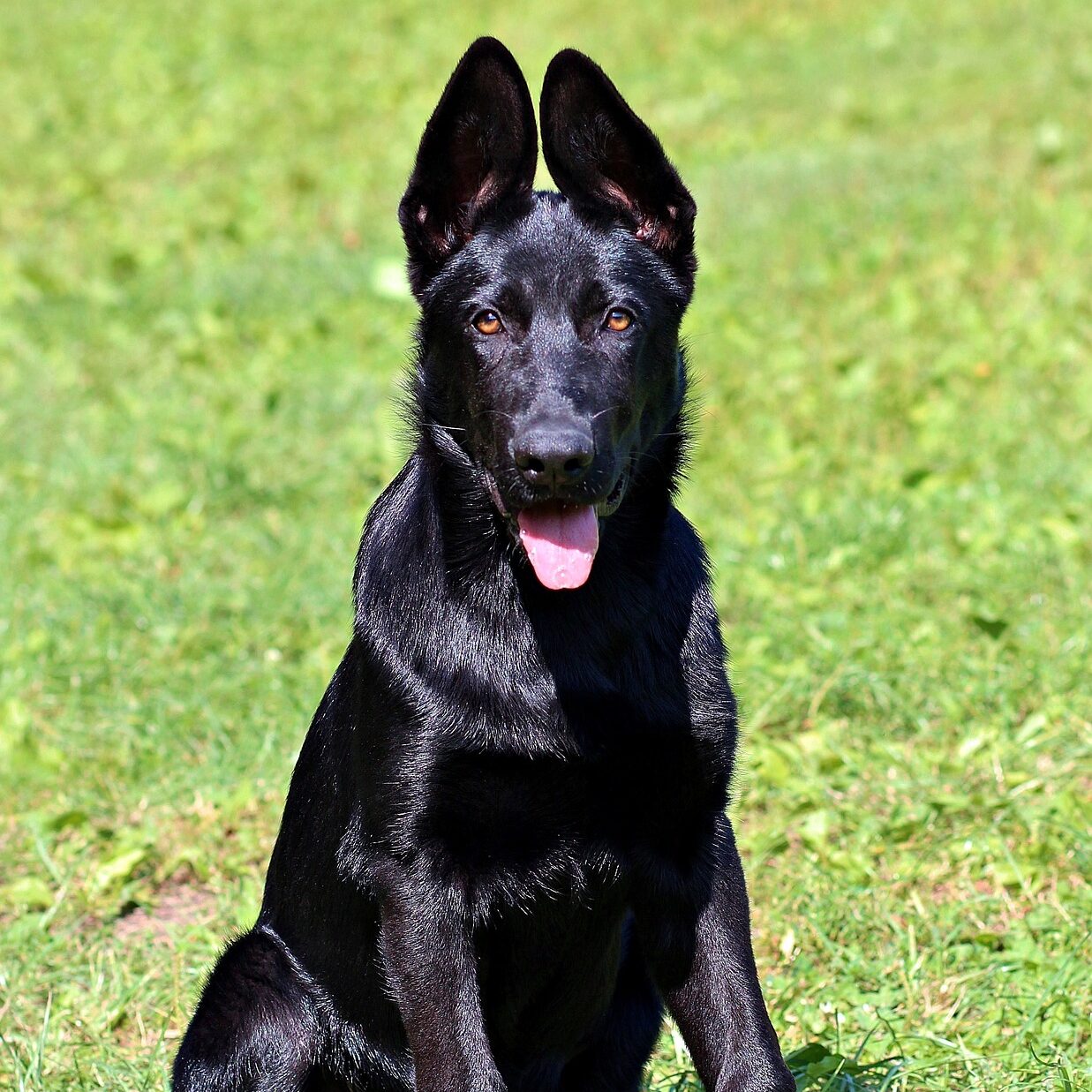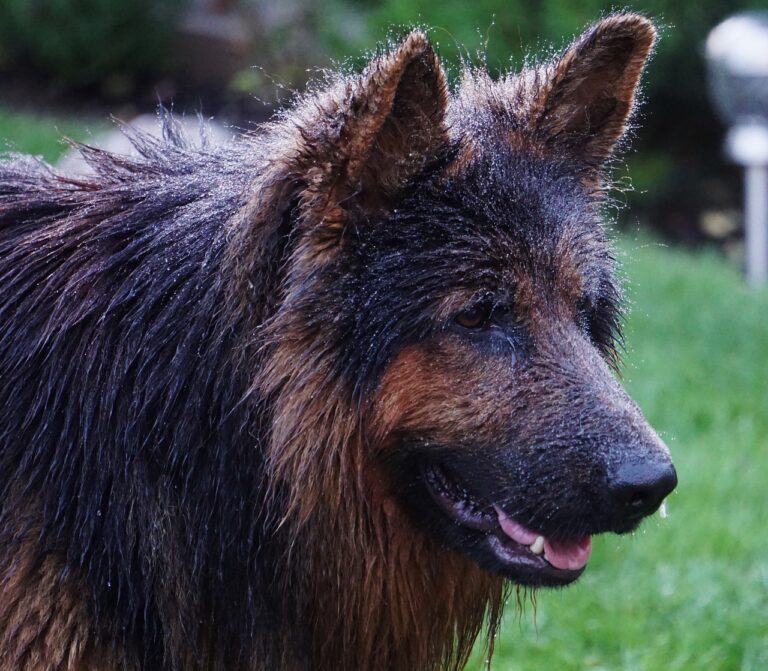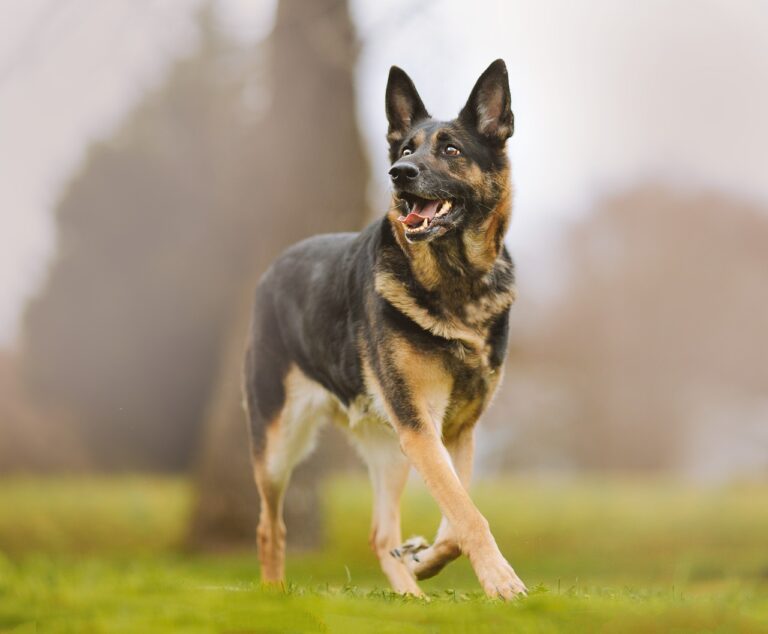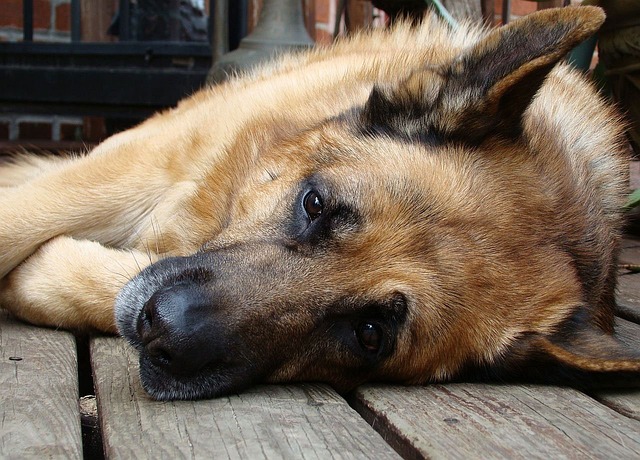
Cats eat meat. Rabbits eat hay. And dogs eat grass? That doesn’t sound right, right? It is common knowledge that dogs love to eat meat and chew on bones or even delicious dog foods packed with loads of nutrients. I mean, there are various highly nutritious choices for them to choose from. So, why would a German Shepherd in its right mind eat grass?
For this question to arise, it means that you’ve caught your German Shepherd eating grass like it’s some ruminant animal. Is this a normal thing? Yes, it’s normal for GSDs or dogs generally, to eat grass in average amounts because dogs are omnivores, not carnivores. The issue will be if they are overeating grass. Overeating grass will cause them to suffer from stomach discomfort.
The question is, why? Why do German Shepherds eat grass? There are several speculations about why German Shepherd owners think their dogs eat grass. Some say that grass grazing helps clean up GSDs’ stomachs. Others reason they are anxious or bored, so they are comforting or soothing themselves. Some others say that their GSD is gaining some nutritional value from grass. Are any of these true? What is the real reason behind German Shepherds eating grass?
There is no one particular reason why dogs eat grass; however, several speculated reasons exist. Your German Shepherd Dog might eat grass because:
- They are bored.
- It’s instinctive behavior.
- It’s a good source of fiber.
- Their diet is deficient in crucial vitamins and minerals.
- They love to eat grass.
How are these the reasons why your GSDs have become lawn-mowing machines? Let’s explain.
- Boredom
You know what a toddler does when you leave them unattended to because you’re busy and they get bored? The unimaginable happens. Similarly, when you don’t give your dog any attention, and they are bored, they do dumb things like chew on furniture. Another thing they could do out of boredom is eat grass.
To keep them entertained, you can keep them busy with lots of toys and activities. Because GSDs have high energy, you should work with them for one or two hours or even more daily.
______________________________________________________________________________
- Instinctive behavior
Some scientists say that GSDs instinctively developed the habit of eating grass from their wolf ancestors. These ancestors didn’t eat packaged foods in sealed bags or cans. They balanced their diets by hunting for internal organs, bones, and meats and ate grass.
Although dogs today don’t need to hunt for food as people serve them on a platter of gold, some dogs haven’t lost their natural instincts to scavenge and eat grass to remind themselves that they still have it.
______________________________________________________________________________
- Fiber
Regular grass provides fiber to GSDs for the maintenance of their digestive systems. Fiber can keep the intestines clean and help to prevent diarrhea and constipation. Fiber helps keep the dog’s body healthy.
Apart from grass, broccoli, carrots, blueberries, peas, and many more are other great sources of fiber which you can include in your GSD’s food. To know what other nutrients and key ingredients your dog breed must have included in their food, you can click on this link to read this post:
______________________________________________________________________________
- Diet deficiency
Usually, German Shepherds suffer from diet deficiencies that pose several health implications. A dog’s deficiency in essential minerals and vitamins can weaken the bones, causing skin problems, digestive issues, poor joint health, and many other problems.
Consult your vet if you believe your GSD is suffering from diet deficiency so he can recommend a suitable treatment.
- Love for grass
The simplest explanation for why your German Shepherd eats grass could be that they love it. Your dog probably enjoys the taste and the texture in its mouth.
______________________________________________________________________________
Why do German Shepherds throw up after eating grass?
GSDs’ culinary choice to eat grass is entirely normal. However, only 25% of dogs that eat grass induce vomiting after ingesting grass. Why?
Some people assume that when dogs vomit, they’re soothing their upset stomachs. However, dogs throw up because they haven’t thoroughly chewed the grass. When a dog doesn’t thoroughly chew the grass, the blades of the grass irritate the stomach lining. When this happens, the dog vomits.
There is cause for alarm, though, if your German Shepherd constantly eats grass and vomits; they likely have Gastrointestinal problems. At this point, it’s best to take your GSD to see the vet.
When do German Shepherds eat grass?
There are several occasions a German Shepherd may abandon a nutritiously sumptuous dog meal and opt for the greens in your lawn. It could be when:
- Your GSD is hungry, and it’s not time for dinner; they go for a light snack.
- Your GSD is left without attention because everyone is busy. They get bored and try to entertain themselves.
- Your GSD is curious. Current studies show that dogs have a vomeronasal organ or a sixth sense. Your GSD may not be eating the grass; they are just curious and want to know who walked through the lawn. To help them perceive better, your dog needs the grass in its mouth.
Health benefits of German Shepherds eating grass
To be healthy, one of the things your GSD needs is fiber, and the grass is a good source of it. When your dog breed lacks fibre, it affects its digestive abilities.
Fiber may also help to reduce your German Shepherd’s risk of having colon cancer because it reduces the exposure to the carcinogens it consumes by speeding elimination.
Fiber also helps to regulate your dog’s bowel movement and helps in the production of firm stools. Simply put, grass helps your dog’s body function smoothly.
Conclusion
Regardless of the health benefits of grass, it is not the best source of fiber for your German Shepherd. Don’t get it wrong; the grass itself is not the problem. Residues from other dogs’ feces can pollute the grass and harbor intestinal parasites. Also, pesticides and herbicides sprayed on the grass are poisonous and detrimental to your dog’s health. So, when your dog takes in the grass, they take in things harmful to its health.
To curb this, observe what works for your dog. If your dog responds well to affection, train it to stop eating grass in exchange for petting or positive verbal reinforcements. In other words, when they try to eat grass, correct them verbally and pet them as a reward. And if your dog responds well to treats, give it goodies in exchange for not eating grass.



